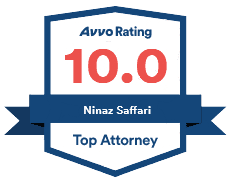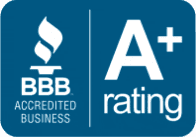Have you been ARRESTED or contacted by the Police, a Detective, FBI, or CPS?
Firearm Sentencing Enhancements
Firearm Sentencing Enhancements in Los Angeles
While possessing a firearm is not typically in and of itself an offense, you will face sentencing enhancements when convicted of committing a felony and having or using a firearm.
See Personal Use of a Firearm During a Felony (California Penal Code section 12022.5);
Personal Use of a Firearm (California Penal Code section 12022.53(b)) (10 years); and
Judicial Council of California Criminal Jury Instructions (“CALCRIM”) “Carrying Firearm: Specified Convictions — Pen. Code §§ 25400(a), 25850(c)”: CALCRIM Number 2540.
Typically, a sentencing enhancement attracts additional penalties and consequences for the primary crime, meaning you will spend more time in a California state prison based on the facts of your offense. Engaging a skilled criminal defense lawyer is the best way to establish a defense strategy to reduce penalties and protect your rights and freedom.
How Guns Sentencing Enhancements Work
Sentence enhancement for the use of firearms applies to California felony gun and weapon charges. It enhances the time served in state prison on top of the penalties for your underlying California felony.
The prosecutor requests the sentencing enhancements. Before receiving the additional penaly, however, you must first admit to your criminal charge(s), or the prosecution team must first find you guilty of all elements of the underlying crime.
The enhancement charged depends on your specific case facts, including:
Whether You Used a Weapon
You do not have to use or even possess the weapon in most firearm enhancements. Unless a code section provides otherwise, a principal in an offense can receive an enhanced sentence.
A principal is any person who either:
- Aids and abets the crime commission, or
- Directly and actively violate the law.
See also Personal Discharge of a Firearm During the Commission of a Serious Felony (California Penal Code section 12022.53(c)) (20 years).
Whether the Defendant Used a Gun or Possessed It
Generally, sentencing enhancements involve using the subject weapon. However, the use of firearms goes beyond firing shots.
It also involves:
- Striking another person with the weapon; or
- Displaying the firearm menacingly.
See Brandishing Firearm or Deadly Weapon (California Penal Code section 417(a)(1)&(2));
Brandishing Firearm or Deadly Weapon: Felony (California Penal Code section 417(b)); and
Displaying an Imitation Firearm in a Public Place (California Penal Code section 12556).
Other sentencing enhancements apply if the defendant is armed with ammunition or a gun.
See, e.g., Felon in Possession of Ammunition (California Penal Code section 30305(a)(1));
“Possession of Ammunition by Person Prohibited from Possessing Firearm Due to Conviction or Mental Illness — Pen. Code § 30305(a)”: CALCRIM Number 2591; and
“Possession of Ammunition by Person Prohibited from Possessing Firearm Due to Court Order — Pen. Code § 30305(a)”: CALCRIM Number 2592.
The prosecutor can consider him or her armed if:
- They have the gun available for use, or
- They knowingly carried the firearm.
The legal term “available for use” does not imply that the firearm is loaded and can shoot. It also does not imply that you have access to the gun. It merely means that you possessed the weapon at the crime scene.
See “Armed Criminal Action — Pen. Code § 25800”: CALCRIM Number 2590.
Your Baseline Felony Criminal Activity
The court will enhance your firearm sentencing penalty if the baseline California felony offense is:
- A serious sex crime,
- A violent crime, or
- A serious drug crime.
Common violent crimes include rape, murder, or kidnapping.
See Strike Offense (California Penal Code section 667(a)&(b); “Violent Felonies”: California Penal Code section 667.5(c); “Serious Felonies”: California Penal Code section 1192.7(c)); and
Strike Sentencing Enhancement (California Penal Code section 1170.12).
See also Aggravated Kidnapping – Robbery, Rape, Other Sex Offenses (California Penal Code section 209(b)).
What Happens When at Least One Sentencing Enhancement Applies
At least one enhancement might apply to the defendant’s crime. In that case, the defendant will face the enhancement carrying the most severe penalty in prison.
Different Firearm Sentencing Enhancements Ranges
The judge has the discretion to sentence the defendant to either of three prison terms, including:
- Low;
- Middle; or
- High.
Some firearms sentencing enhancements require that the judge apply the middle prison term provided there are no aggravating or mitigating circumstances. Your attorney should insist that the judge explain their choice on the record at the sentencing hearing.
Aggravating circumstances are factors that permit the judge to mandate a longer prison sentence.
See, e.g., 10-20-Life “Use A Firearm and You Are Done” Law (California Penal Code section 12022.53).
Conversely, mitigating circumstances are aspects that justify the judge enforcing a shorter prison sentence. Sometimes, the circumstances can justify the judge in dismissing the sentencing enhancement altogether.
Generally, aggravating or mitigating factors are associated either with the accused person and/or the criminal conduct itself.
Factors linked to the offense include:
- The crime’s sophistication or planning;
- Whether the criminal conduct was brutal or harsh; and
- Whether you participated passively or actively.
Factors linked to the accused person include:
- Whether you were previously convicted of a felony (especially a firearm charge);
- Whether you willingly acknowledged the crime at your criminal process’s initial stage; and
- Your violent-behavior history (if any).
See also Felon in Possession of a Firearm: California Penal Code section 29800.
Criminal Defense
Menu










Various Types of California Firearms Sentencing Enhancements
Gun enhancements are highlighted in the following Penal Code sections:
Personal Use of a Dangerous Weapon During the Commission of a Felony (California Penal Code section 12022)
A court can apply P.C. § 12022 provisions if, when committing a California felony:
- You used deadly or dangerous weapons, or
- You were armed with a gun.
Deadly or dangerous weapons in this context are weapons, except for firearms, that can cause serious injury or death.
See also Prior Offenses Involving Violent Gun Use (California Penal Code section 23515);
Carrying a Concealed Firearm on Your Person or in a Vehicle (California Penal Code section 25400); and
“Possession of Deadly Weapon with Intent to Assault — Pen. Code § 17500”: CALCRIM Number 2503.
Therefore, since P.C. § 12022 relates to firearms, you will also be punished for the underlying gun possession charge.
Use of firearms when committing a California felony can be punished by either of the following enhancements:
- The sentence for the underlying felony conviction, plus
- A consecutive and additional term in state prison, as discussed below.
a) Basic Sentencing EnhancementAlternatively, you face a consecutive/additional year simply for having a gun during the felony commission.
b) Carjacking (California Penal Code section 215) or Attempted Carjacking (California Penal Code section 664)If your underlying crime is C. § 215, your sentence will be increased by one (1), two (2), or three (3) years in a California state prison.
c) Possessing Assault WeaponsIf, during the felony crime commission, the defendant had a machine gun, a .50 BMG rifle, or an assault weapon, they would face a minimum three-year sentence enhancement.
See Possession of an Automatic Weapon (submachine gun) (California Penal Code section 30600);
Possession of an Assault Weapon (California Penal Code section 30605); and
“Possession, etc., of Assault Weapon or .50 BMG Rifle — Pen. Code §§ 30605, 30600”: CALCRIM Number 2560.
d) Drug CrimesSome of the drug crimes that attract a gun sentencing enhancements under P.C. § 12022 include violations of:
- Possessing controlled substances for sale (H.S. § 11351); and
- Selling or transporting drugs (H.S. § 11352).
See Possession for Sale of a Controlled Substance (California Health and Safety Code section 11351);
Sale or Transportation of a Controlled Substance (California Health and Safety Code section 11352); and
Sale or Transportation of Methamphetamine (California Health and Safety Code section 11379).
If the defendant was armed with a firearm when violating any of these laws, the court would increase their sentence by three (3), four (4), or five (5) years.
And if you did not carry the weapon but knew that somebody else – i.e., an accomplice — was armed during the incident, your prison term would increase by one (1), two (2), or three (3) years.
See Possession of a Controlled Substance While Armed with a Firearm (California Health and Safety Code section 11370.1); and
“Possession of Controlled Substance While Armed with Firearm — Health & Saf. Code § 11370.1”: CALCRIM Number 2303.
Use of Armor-Piercing Ammunition (California Penal Code section 12022.2)
This enhancement applies if you commit a felony crime while:
- Equipped with a gun, and
- It contained armor-piercing ammunition.
You can also face the sentencing enhancement if you committed a violent felony while putting on a body vest. Body vests are protective clothing that offers trauma and ballistic weapon protection. The clothing must be made of a material resistant to bullets.
If you had metal-or armor-piercing ammunition when violating the law, the judge could enhance your sentence by three (3), four (4), or five (5) years.
If the defendant puts on a body vest when committing or attempting to commit a violent felony, they will face an enhanced state prison sentence of one (1), two (2), or five (5) years.
Possession of a Firearm During the Commission of a Specified Sex Offense (California Penal Code section 12022.3)
California P.C. § 12022.3 provides an enhancement for any person who possesses or uses a gun when committing certain sex crimes, including:
- Spousal/Marital Rape (California Penal Code section 262);
- Rape (California Penal Code section 261);
- Sodomy (California Penal Code section 286);
- Oral Copulation with a Minor (California Penal Code section 287(b)); and
- Forcible Sexual Penetration (California Penal Code section 289).
The sexual offense commission in this section does not end after the sexual conduct is completed. It continues, provided you can control the alleged victim. In other words, you can face the sentencing enhancement even though you showed the weapon after completing your sexual conduct.
If you possess or use a weapon when committing a sex offense, then on top of the sentence for your underlying sex offense, you face:
- One (1), two (2), or five (5) years for possessing a deadly weapon or firearm; or
- Three (3), four (4), or ten (10) years for using a deadly weapon or a gun.
Furnishing or Attempting to Furnish a Firearm with the Purpose of Aiding or Abetting that Person to Commit a Felony (California Penal Code section 12022.4)
Before imposing this sentencing enhancement, the prosecutor must prove that you:
- Furnished or attempted to furnish a gun to another person, and
- Acted so intending to aid or abet the individual to commit a California felony.
Unlike other firearms enhancement statutes, the legal term “commit” under P.C. § 12022.4 has a more comprehensive meaning. The defendant is not required to be present during the felony commission itself. If the accused knowingly provides a person with the weapon before the latter commits a crime, the enhancement applies provided it is a continuous transaction.
Personal Use of a Firearm During a Felony (California Penal Code section 12022.5)
California P.C. § 12022.5 provides an enhancement if the defendant personally uses a gun when committing or attempting to commit a felony.
The term “personal use” implies that you:
- Fired your gun;
- Hit somebody else using the firearm; or
- Displayed the gun menacingly.
Suppose you displayed a substance that looks like a gun during a California felony commission. In that case, your words and behavior and the item’s appearance can constitute enough evidence to support the finding that it was indeed a gun.
The gun does not have to be functional or loaded. What matters is that it is tailored to fire ammunition and is capable of doing so.
Suppose the defendant actually used a firearm when committing a felony or attempting to commit a felony. In that case, they will spend an additional, consecutive three (3), four (4), or ten (10) years in prison on top of their underlying term.
If you used a machine gun or assault weapon during an attempted felony or felony commission, your felony criminal penalties would be enhanced by:
- Five (5),
- Six (6), or
- Ten (10) years in California state prison.
10-20-Life “Use A Firearm and You are Done” Law (California Penal Code section 12022.53)
California P.C. § 12022.53 provides for a sentencing enhancement for using a gun when committing a serious felony, including:
- Mayhem (California Penal Code section 203) or Aggravated Mayhem (California Penal Code section 205);
- Murder (California Penal Code section 187(a));
- Kidnapping (California Penal Code section 207; California Penal Code section 209; & California Penal Code section 209.5);
- Robbery (California Penal Code section 211);
- Carjacking (California Penal Code section 215);
- Assault Intending to Commit a Felony ; (California Penal Code section 220);
- Rape (California Penal Code section 261) or Spousal/Marital Rape (California Penal Code section 262);
- Assault with a Firearm on a Police Officer or Firefighter (California Penal Code section 245(d));
- Sodomy (California Penal Code section 286);
- “Gang Rape” (Forcible Rape Act in Concert) or Sexual Penetration in Concert (California Penal Code section 264.1);
- Forcible Sexual Penetration (California Penal Code section 289);
- Oral Copulation by Force, Fear, or Threats (California Penal Code section 287);
- Holding a Hostage by a Prisoner (California Penal Code section 4503);
- Assault by a Prisoner (California Penal Code section 4501);
- Assault by a Life Prisoner (California Penal Code section 4500);
- An Attempt to Commit Murder, Mayhem, Carjacking, Robbery, or Kidnapping (California Penal Code section 664); and
- Any California felony that carries death or life imprisonment as a penalty.
California Penal Code section 12022.53 enhances the primary felony sentence by:
- Ten years for using a firearm;
- Twenty years for firing the firearm; or
- Twenty-five to life imprisonment for severely injuring or killing somebody else using a firearm.
If at least one of these circumstances applies, the jury will sentence you to the subdivision carrying the most serious penalty.
For example, assuming the defendant is guilty of Armed Robbery/Second-Degree Robbery (California Penal Code section 212.5(c)), they will spend up to five (5) years in state prison.
However, if they used a firearm to commit the robbery, their sentence will be enhanced to fifteen years total. If they fired the gun, they would spend 25 years in prison. If, during the robbery commission, they fired the gun and a person was killed or severely injured, their sentence term becomes 30 years.
Please note that the judge will impose the ten-year sentencing enhancement even though the defendant did not point the firearm at the alleged victim. The judge considers them to have used the gun provided it facilitated the crime commission, even if they didn’t use it to threaten the victim.
The “10-20-Life” Rule (California Penal Code section 12022.53) Applies to Gang Members Who Did Not Use a Gun
The “10-20-life” rule typically applies to a person who used or discharged a firearm.
Nevertheless, there is a gang member exemption to the rule. The enhancement applies to every principal sentenced for a serious or violent felony if:
- You committed the primary California felony for the criminal street gang’s benefit; and
- Any involved principal discharged or used the gun.
Behavior for the benefit of the criminal street gang means the conduct willfully furthers, assists, or promotes the gang members. It is not necessarily that you are an actual gang member – you could have been merely an associate. The law only requires that the behavior benefits the gang.
See also Gang Enhancement (California Penal Code 186.22); and
“Carrying Firearm: Active Participant in Criminal Street Gang — Pen. Code §§ 25400(c)(3), 25850(c)(3)”: CALCRIM Number 2542.
Fighting California Firearms Sentencing Enhancements
Below are legal defenses and strategies your criminal defense lawyer can use to fight your gun and weapon sentencing enhancement charges.
You Acted in Self-Defense
You can assert that you used your firearm to protect yourself or somebody else. The legal defense is only valid if all the statements below apply:
- You reasonably believed that you (or another person) were in imminent danger of sustaining bodily injury or death;
- You reasonably believed that the use of a gun was necessary to defend against the imminent danger; and
- You used no more force than was essential to defend against the danger.
See “Right to Self-Defense or Defense of Another — Non-Homicide”: CALCRIM Number 3470;
“Possession of Firearm by Person Prohibited by Statute: Self-Defense”: CALCRIM Number 2514; and
“Voluntary Manslaughter: Imperfect Self-Defense or Imperfect Defense of Another – Lesser Included Offense — Pen. Code § 192”: CALCRIM Number 571.
Suppose the jury/judge/prosecutor determines that you only fired or used the firearm because you reasonably feared imminent harm to yourself or another person. In this case, you should not face an enhancement for using the firearm.
However, you could face penalties for violating other gun laws, such as:
- Carrying a Loaded Firearm on One’s Person or in a Vehicle (California Penal Code section 25850(a));
- Felon in Possession of a Firearm (California Penal Code section 29800);
- Possession of a “Generally Prohibited Weapon” (California Penal Code section 16590); and
- Possession of an Automatic Weapon (submachine gun) (California Penal Code section 30600).
You Did Not Commit the Baseline Felony Subject to the Enhancement
A firearm sentencing enhancement increases the penalties for specific underlying felonies. That means you will not face an enhancement if the prosecutor cannot prove beyond any reasonable doubt that you committed that felony.
You Did Not Use the Gun During the Crime Commission
The court cannot impose sentencing enhancements like P.C. § 12022.5 or P.C. § 12022.53 unless the prosecutor proves you used the gun to commit the felony.
See Personal Use of a Firearm During a Felony (California Penal Code section 12022.5); and
10-20-Life “Use A Firearm and You are Done” Law (California Penal Code section 12022.53).
That means the court cannot impose an enhancement even if you committed the underlying felony, provided you did not use the firearm.
The Police Found the Gun During an Unlawful Search and Seizure
The Fourth Amendment to the U.S. Constitution protects you from unreasonable searches and seizures.
Specifically, a law enforcement officer cannot lawfully search you, your home, property, or motor vehicle unless they have:
- A valid search warrant explicitly identifying the space to be searched and the items sought;
- Your voluntary consent to the police search; or
- Probable cause for their police search (probable cause that you are violating a law or posing threats to the police officers’ safety).
If the search was unlawful and a firearm was discovered, it is inadmissible in court.
See Motion to Dismiss (California Penal Code section 995); and
Motion to Suppress Evidence (California Penal Code section 1538.5).
Police Misconduct
If you are a victim of police misconduct, the court can dismiss your underlying felony charge. If the charges are dismissed, there is obviouslyno sentence to enhance.
Common police misconduct cases include the following:
- A law enforcer testifying falsely about your case facts;
- A cop lying in their police report; and
- Police officers planting a concealed gun in your motor vehicle, home, or on your person.
Other Factors to Consider about California Firearms Sentencing Enhancements
These factors include the following:
- Your firearm need not be operative for you to be found guilty of a gun enhancement. What matters is whether it was designed to fire bullets and whether it can do so if it was in working condition. Therefore, the judge can impose the enhancement even when your gun does not contain bullets.
See also Carrying an Exposed and Unloaded Handgun in a Public Place or in a Vehicle (California Penal Code section 26350).
- The “double jeopardy” clause of the Fifth Amendment to the U.S. Constitution bans multiple punishments for one crime. In other words, it is constitutionally impermissible that the underlying conviction and your sentencing enhancement punish the same crime. Since determining whether two criminal charges punish one criminal activity, hiring a criminal defense lawyer is essential.
- The defendant can only face one enhancement for every offense they commit. You will face the enhancement with the most severe prison sentence if you are found guilty of one crime but convicted of multiple enhancements. Nevertheless, the enhancement will apply to every offense you are sentenced for.
See also Strike Offense (California Penal Code section 667(a)&(b); “Violent Felonies”: California Penal Code section 667.5(c); “Serious Felonies”: California Penal Code section 1192.7(c)); and
Strike Sentencing Enhancement (California Penal Code section 1170.12).
You will receive several firearm sentencing enhancements if you have at least one California felony conviction.
See “Carrying Firearm: Specified Convictions — Pen. Code §§ 25400(a), 25850(c)”: CALCRIM Number 2540;
“Possession of Firearm by Person Prohibited Due to Conviction – No Stipulation to Conviction — Pen. Code §§ 29800, 29805, 29820, 29900”: CALCRIM Number 2510; and
“Possession of Firearm by Person Prohibited Due to Conviction – Stipulation to Conviction — Pen. Code §§ 29800, 29805, 29820, 29900”: CALCRIM Number 2511.
Interaction with other sentencing enhancements. As previously mentioned, there are two categories of sentencing enhancements; those that relate to the specific defendant and those that address the crime’s nature. The enhancements punish all aspects of the offense, making you liable for both types of the same California felony.
Firearm sentencing enhancement can lead to the government declaring the weapon a nuisance. It can result in the government seizing the gun from you.
Senate Bill 620
On October 11, 2017, Governor Brown signed Senate Bill 620 (2017–2018 Reg. Sess., which amended California Penal Code section 12022.5 and California Penal Code section 12022.53, to provide trial courts with the discretion to strike a firearm enhancement or finding.
As a result, courts may now “strike or dismiss” an enhancement under these Penal Code sections in the interests of justice (California Penal Code section 1385).
See also People v. McDaniels (2018) 22 Cal.App.5th 420, 423 (SB 620 effective January 1, 2017; amended Penal Code sections 12022.53, subd. (h) and 12022.5 (c) to allow striking firearm enhancements).
"Ninaz is highly professional, organized, and talented."
RobertClient
"I always refer to Ninaz Saffari as a fighter in the courtroom. I walked out of court a free-man due to this attorney's hard work and know-how."
Kevin F.Client
"She not only makes you feel comfortable but she is very competent and experienced in pretty much any kind of situation and scenario. I feel very lucky to know her."
AddyClient